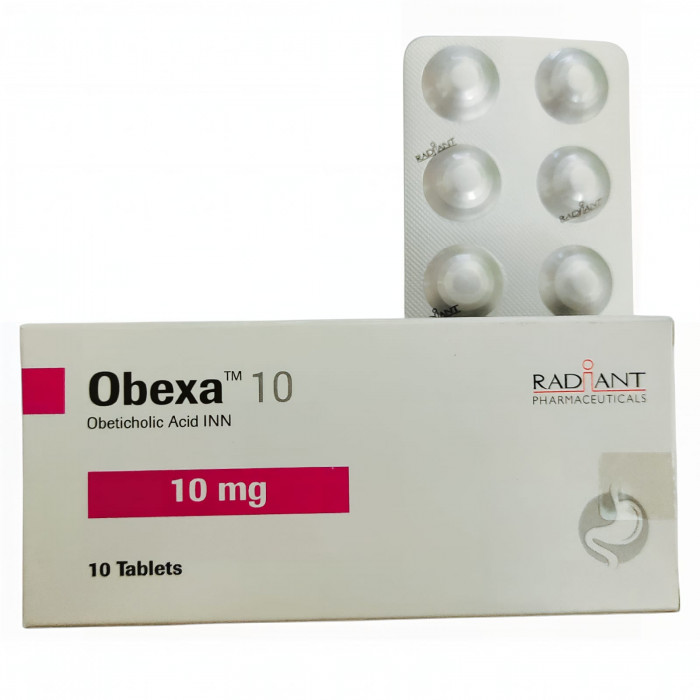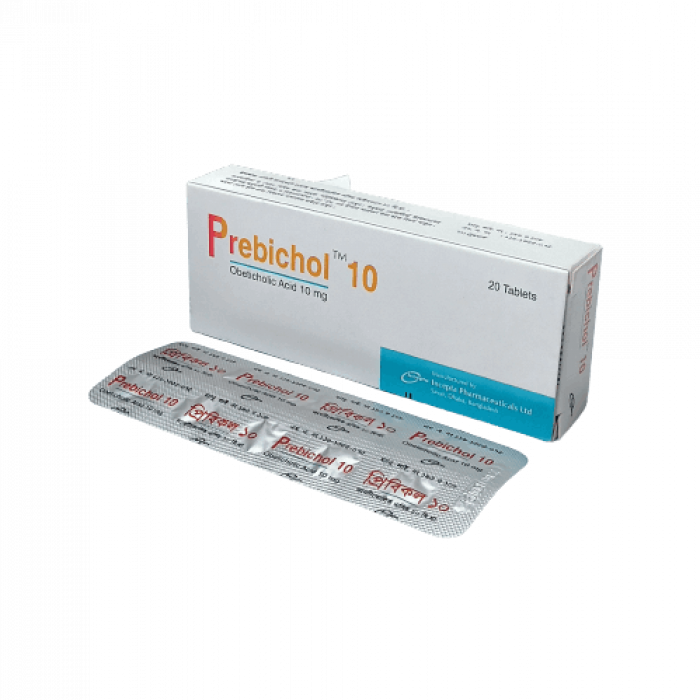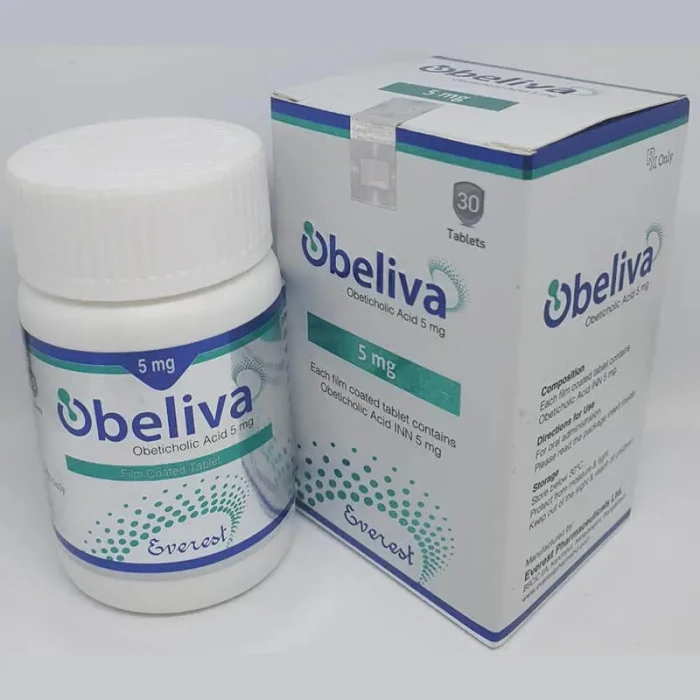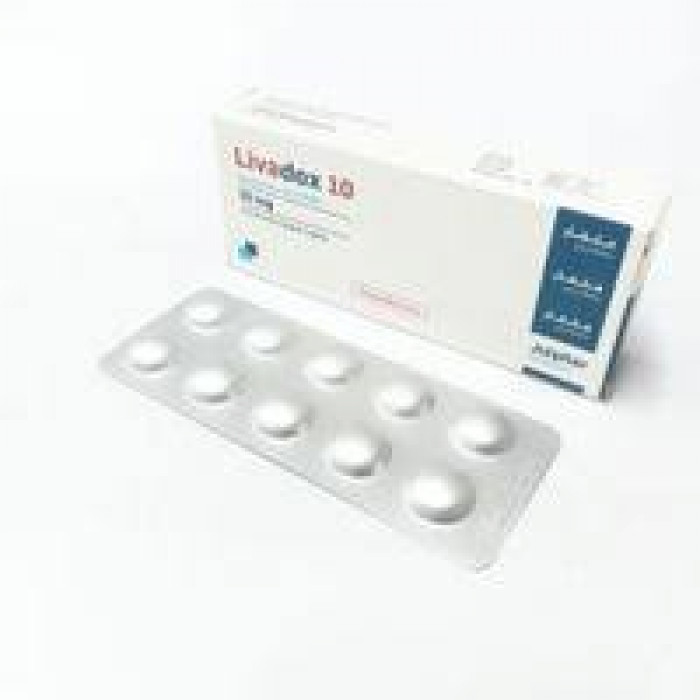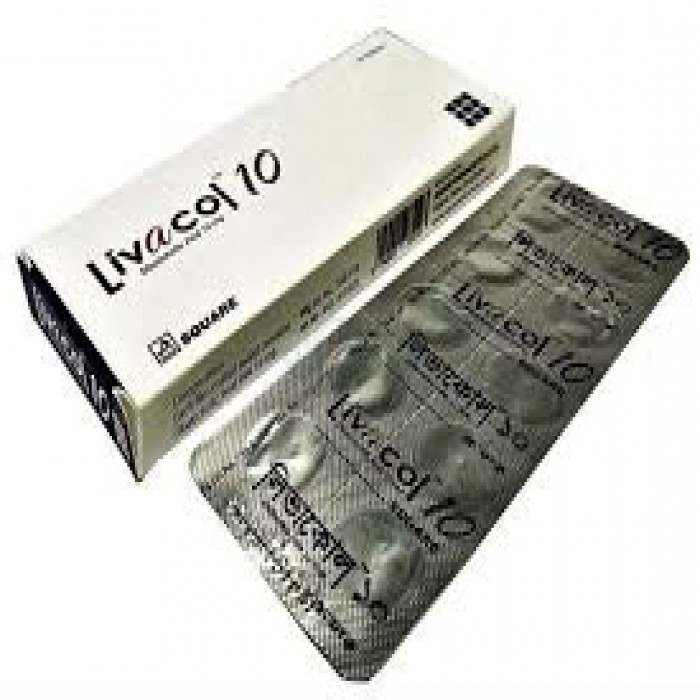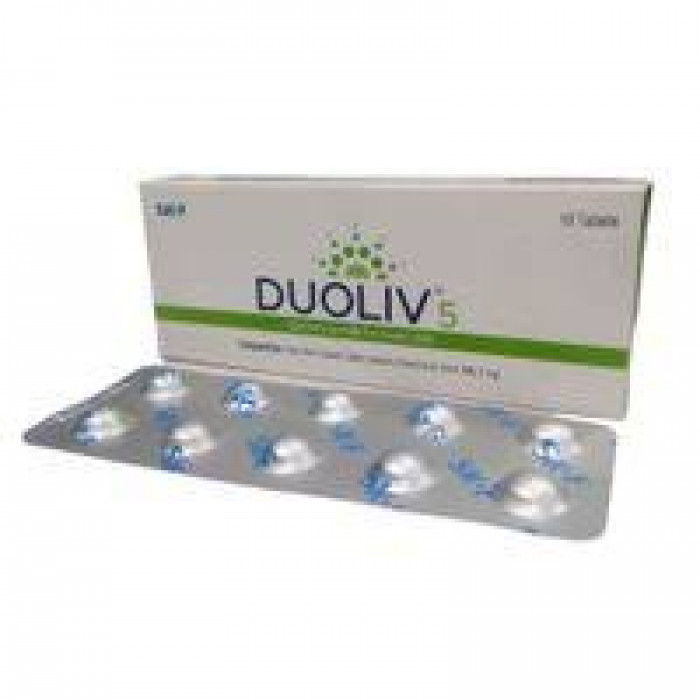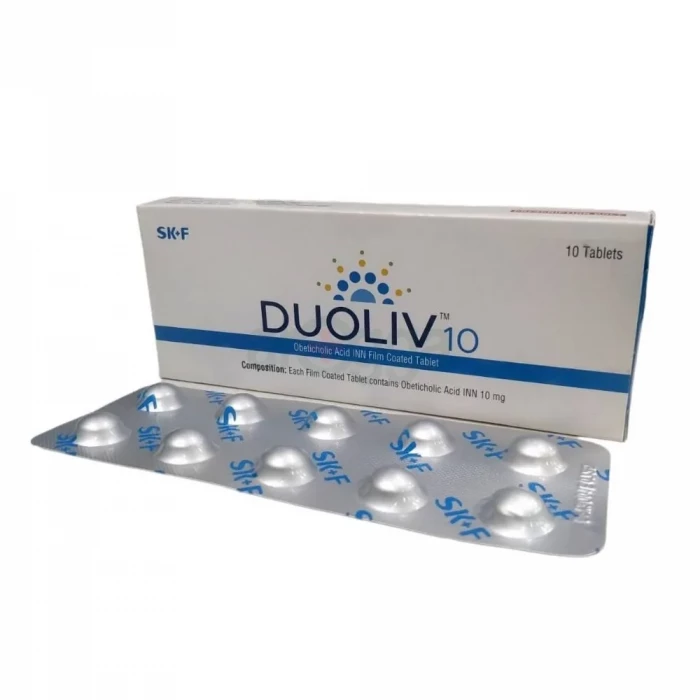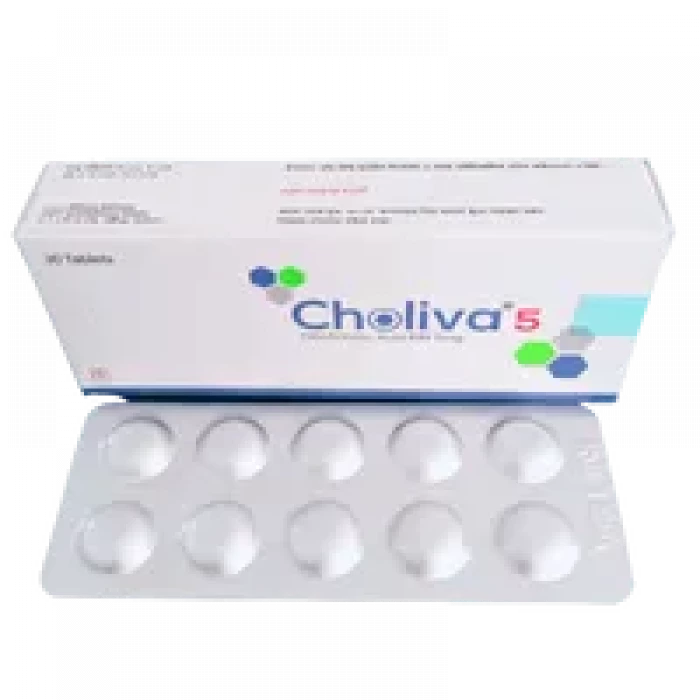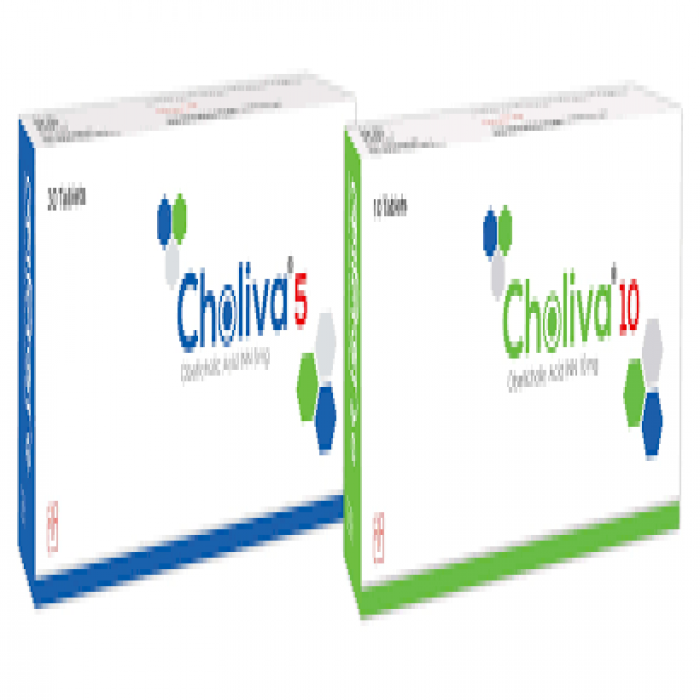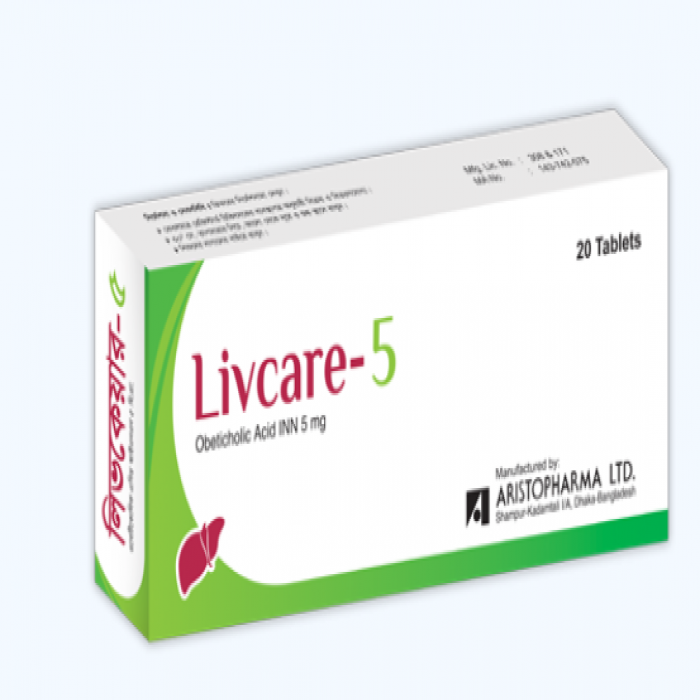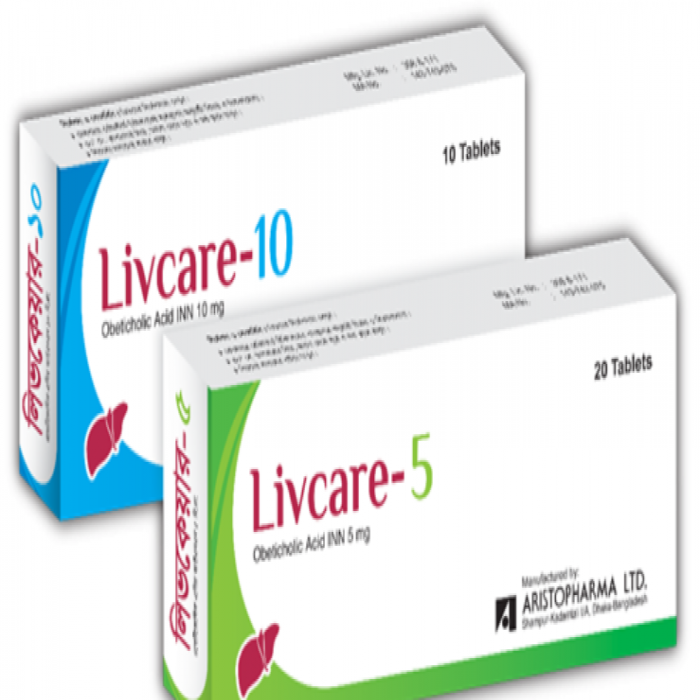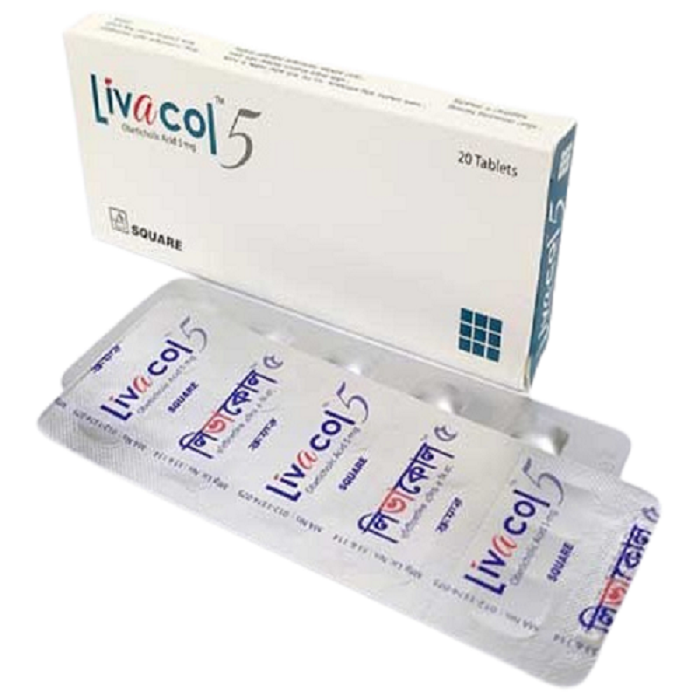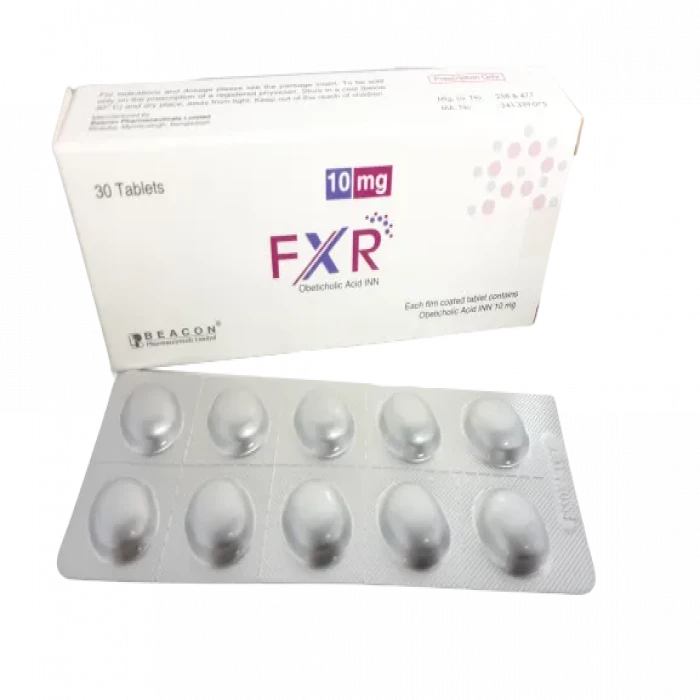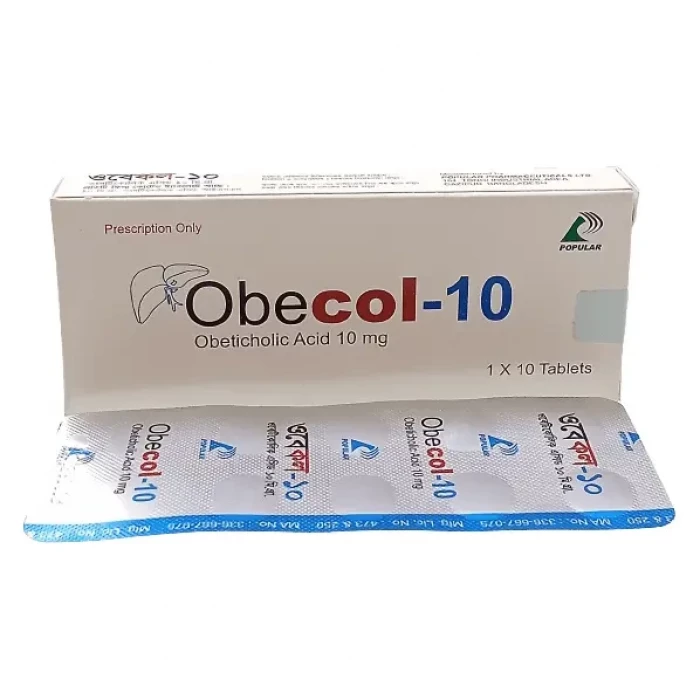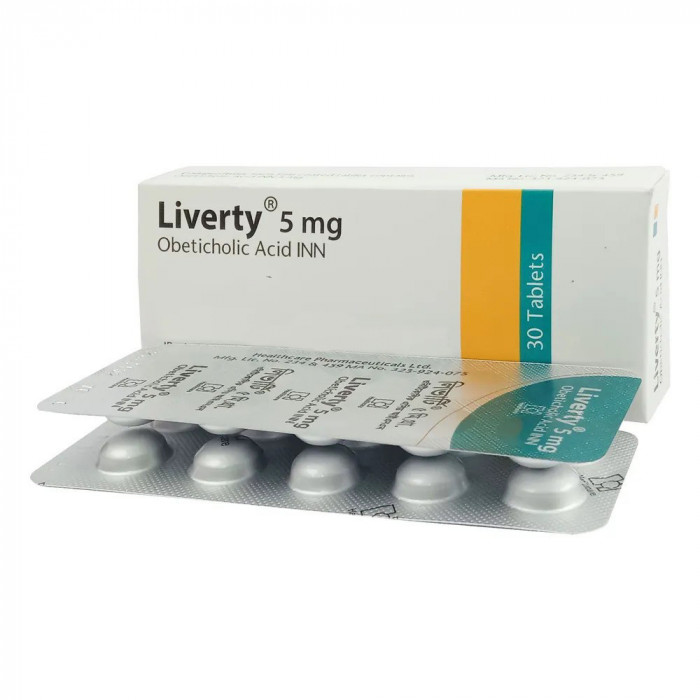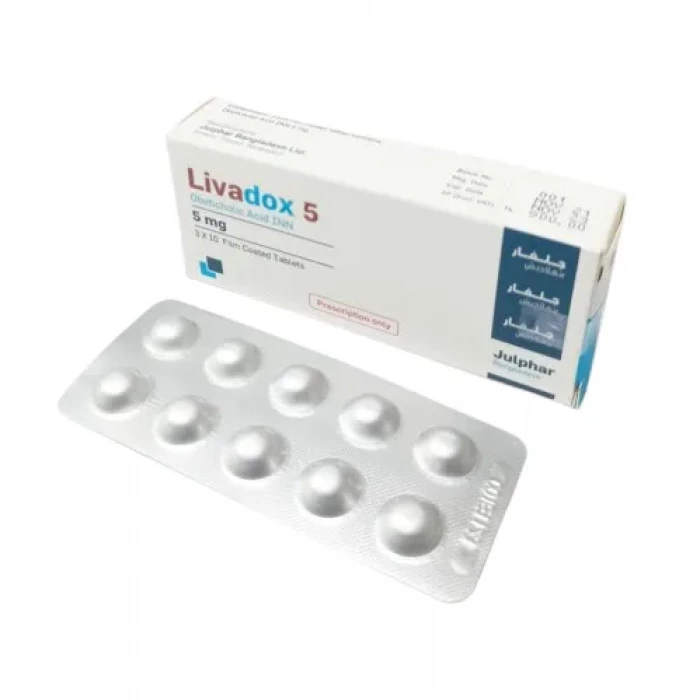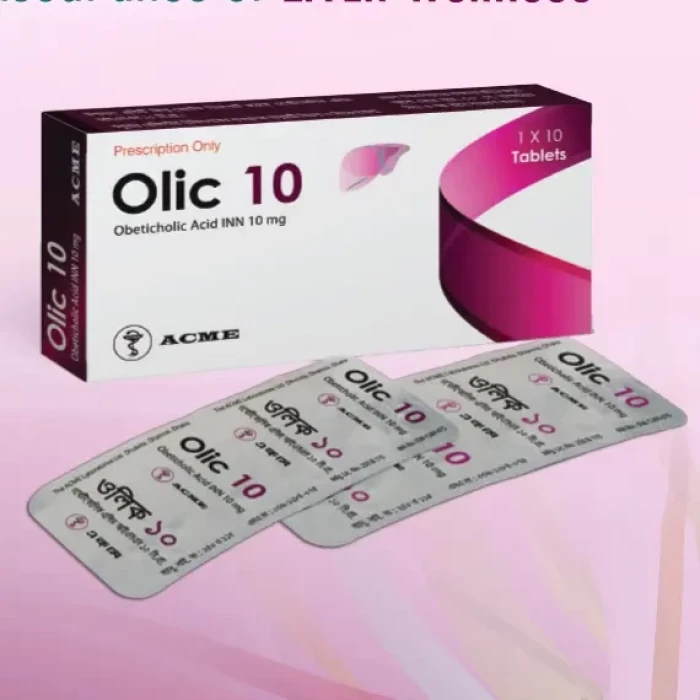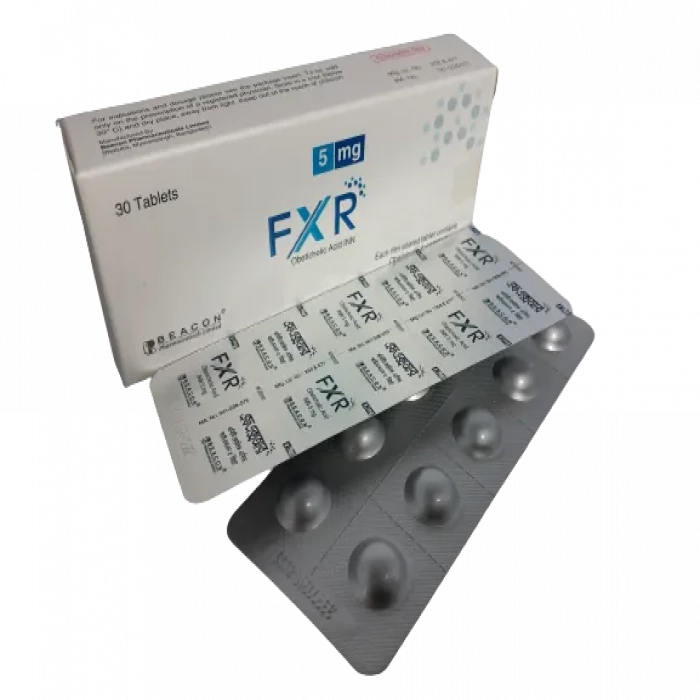
✔ 100% Authentic Product
👁️ Currently Viewing 2518
FXR 5mg Tablet 10pcs
Obeticholic Acid is indicated for the treatment of primary biliary cholangitis (PBC) in adults.
- It can be used in combination with ursodeoxycholic acid (UDCA) for patients with an inadequate response to UDCA for at least 1 year.
- It can also be used as monotherapy for adults who are unable to tolerate UDCA.
Discount
Price: ৳ 288
MRP:
৳
300
4%
Off

100% Genuine Products, Guaranteed

Safe & Secure Payments, Always

Fast, Secure & Efficient Delivery

Proper Packaging
 Cash on Delivery - All over Bangladesh
Cash on Delivery - All over Bangladesh Regular Delivery - 12-24 Hours, Dhaka City* Charge Tk.39-59
Regular Delivery - 12-24 Hours, Dhaka City* Charge Tk.39-59 Regular Delivery - 24-48 Hours, Other Cities* Charge Tk.99-110
Regular Delivery - 24-48 Hours, Other Cities* Charge Tk.99-110
 ফ্রি ডেলিভারিঃ - ৯৯৯ টাকা+ অর্ডারে, ঢাকা
শহরে
ফ্রি ডেলিভারিঃ - ৯৯৯ টাকা+ অর্ডারে, ঢাকা
শহরে ফ্রি ডেলিভারিঃ - ২৯৯৯ টাকা+ অর্ডারে, ঢাকার
বাহিরে
ফ্রি ডেলিভারিঃ - ২৯৯৯ টাকা+ অর্ডারে, ঢাকার
বাহিরে
100% Genuine Products, Guaranteed
Safe & Secure Payments, Always
Fast, Secure & Efficient Delivery
Proper Packaging
 Cash on Delivery - All over Bangladesh
Cash on Delivery - All over Bangladesh Regular Delivery - 12-24 Hours, Dhaka City* Charge Tk.39-59
Regular Delivery - 12-24 Hours, Dhaka City* Charge Tk.39-59 Regular Delivery - 24-48 Hours, Other Cities* Charge Tk.99-110
Regular Delivery - 24-48 Hours, Other Cities* Charge Tk.99-110 ফ্রি ডেলিভারিঃ - ৯৯৯ টাকা+ অর্ডারে, ঢাকা
শহরে
ফ্রি ডেলিভারিঃ - ৯৯৯ টাকা+ অর্ডারে, ঢাকা
শহরে ফ্রি ডেলিভারিঃ - ২৯৯৯ টাকা+ অর্ডারে, ঢাকার
বাহিরে
ফ্রি ডেলিভারিঃ - ২৯৯৯ টাকা+ অর্ডারে, ঢাকার
বাহিরে
✅ Description:
- FXR 5mg Tablet acts as an FXR (Farnesoid X receptor) agonist.
- FXR is a nuclear receptor present in various tissues, including the liver, intestine, kidney, and adipose tissue.
- FXR plays a crucial role in regulating bile acid synthesis and transport, lipid metabolism, and glucose homeostasis.
- By activating FXR, Obeticholic Acid reduces de novo bile acid synthesis and increases the transport of bile acids out of hepatocytes, ultimately reducing hepatocyte exposure to bile acids.
Safety Advices

Alcohol
CONSULT YOUR DOCTOR
It is not known if alcohol interacts with FXR 5mg Tablet

Pregnancy
UNSAFE
If you are pregnant, it is advisable to consult your doctor before taking FXR 5mg Tablet. Limited information is available about the use of this medication during pregnancy, so the potential risks and benefits should be discussed with your healthcare provider.

Breastfeeding
CONSULT YOUR DOCTOR
For breastfeeding mothers, it is recommended to consult your doctor. Your healthcare provider will determine whether FXR 5mg Tablet can be taken while breastfeeding, considering the potential impact on both the mother and the breastfed infant.

Driving
CAUTION
FXR 5mg Tablet is generally safe for driving if prescribed. However, if you experience dizziness as a side effect of the medication, it is advised to avoid driving or operating heavy machinery to ensure

Kidney
CONSULT YOUR DOCTOR
If you have kidney impairment or any concerns related to your kidney function, it is advisable to consult your doctor.

Liver
CONSULT YOUR DOCTOR
Individuals with liver impairment or concerns related to their liver function should consult their doctor. Dose adjustments may be necessary, and your healthcare provider can provide guidance on the appropriate use of FXR 5mg Tablet in such cases. It's important to inform your doctor if you have or have liver cirrhosis.
✔️ Uses of FXR 5mg Tablet
Primary biliary cirrhosis
✔️ How does FXR 5mg Tablet work?
Obeticholic Acid works by decreasing the production of bile in the liver and promoting the removal of bile from your liver.
✔️ Side Effects of FXR 5mg Tablet
- Common side effects include pruritus (itching), fatigue, abdominal pain, reduced high-density lipoprotein cholesterol (HDL-C), and discomfort.
- Severe pruritus, rash, and oropharyngeal pain can occur in some patients.
✔️ Quick Suggestions:
- Obeticholic Acid can be taken with or without food.
- Avoid taking more or less than the recommended dose.
- Do not stop taking the medication without talking to your doctor. Your doctor may suggest tests to monitor your liver function and bilirubin levels periodically while you are taking this medicine.
- Eat a healthy balanced diet low in fat and exercise regularly to prevent gallstone formation.
✔️ Primary biliary cholangitis:
Primary biliary cholangitis (PBC), formerly known as primary biliary cirrhosis, is an autoimmune liver disease characterized by progressive damage to the small bile ducts in the liver. These tiny tubes, known as bile ducts, are responsible for transporting bile, a digestive fluid produced by the liver, to the small intestine. Bile plays a crucial role in the digestion and absorption of dietary fats.
In PBC, the body's immune system mistakenly targets and damages the bile ducts, leading to their inflammation and destruction. As a result, bile accumulates in the liver, causing a range of problems, including liver damage and scarring (fibrosis) over time. This continuous damage to the liver can eventually lead to cirrhosis, which is characterized by extensive scarring and impaired liver function.
PBC is considered an autoimmune disease because the immune system's attack on the bile ducts is an abnormal immune response. The exact cause of PBC is not fully understood, but genetic, environmental, and immunological factors likely play a role in its development.
Patients with PBC may experience various symptoms, including fatigue, itching (pruritus), dry eyes and mouth (Sjögren's syndrome), and, in more advanced stages, complications of liver cirrhosis. Early diagnosis and treatment are crucial to manage the condition and prevent further liver damage.
The primary treatment for PBC is ursodeoxycholic acid (UDCA), which helps manage symptoms and slow disease progression. Obeticholic acid, as described earlier, is another medication that may be used in combination with UDCA or as monotherapy in cases where UDCA is not effective or tolerated.
Regular monitoring and management of PBC are essential to maintain liver health and improve the quality of life for affected individuals.
✔️ Pharmacology
Obeticholic acid's mechanism of action involves activating the Farnesoid X receptor (FXR), which is a nuclear receptor found in the liver and gut. FXR plays a vital role in regulating various pathways, including those related to bile acids, inflammation, fibrosis, and metabolism. When obeticholic acid activates FXR, it triggers several changes in the body:
- Reducing Intracellular Bile Acids: FXR activation leads to a reduction in the concentrations of bile acids within the hepatocytes (liver cells). This is achieved by limiting the production of de novo cholesterol, a precursor to bile acids. By reducing the synthesis of new bile acids, obeticholic acid helps lower the overall bile acid levels inside the liver.
- Enhancing Bile Acid Transport: FXR activation also promotes the transport of bile acids out of the hepatocytes and into the bile ducts. This process facilitates the removal of bile acids from the liver, preventing their accumulation within liver cells.
- Reducing Hepatic Bile Acid Exposure: The combined effects of lowering intracellular bile acids and increasing their transport out of hepatocytes help reduce the exposure of the liver to excessive bile acids. This is important because elevated bile acid levels can lead to liver damage.
- Increasing Choleretic Activity: Choleretic activity refers to the production and flow of bile. By increasing choleretic activity, obeticholic acid assists in the release of bile acids from the liver into the bile ducts, which is essential for the digestion and absorption of dietary fats.
✔️ Dosage & Administration
Adult Dose:
- The recommended starting dose of Obeticholic Acid depends on the patient's condition.
- For noncirrhotic or compensated Child-Pugh class A patients, the starting dose is 5 mg once daily. If needed, it can be titrated to 10 mg once daily.
- For Child-Pugh class B or C patients, or those with a prior decompensation event, the starting dose is 5 mg once weekly. It can be titrated to 5 mg twice weekly and, if required, to 10 mg twice weekly.
Administration:
- Obeticholic Acid can be taken with or without food.
- If you are taking a concomitant bile-acid binding resin, ensure to separate the dose of Obeticholic Acid by at least 4 hours.
✔️ Interaction
- Bile-acid binding resins may reduce the absorption and efficacy of Obeticholic Acid.
- Co-administration with warfarin can decrease the INR; monitor INR and adjust the warfarin dose accordingly.
- Obeticholic Acid may increase exposure to CYP1A2 substrates, so monitor these substrates with a narrow therapeutic index.
- Avoid concomitant use of inhibitors of the bile salt efflux pump (BSEP), such as cyclosporine, as they may exacerbate the accumulation of conjugated bile salts in the liver.
✔️ Contraindications
Obeticholic Acid is contraindicated in patients with complete biliary obstruction.
✔️ Pregnancy & Lactation
There is insufficient human data on the use of Obeticholic Acid during pregnancy to establish the risk associated with the drug. There is no information on the presence of Obeticholic Acid in human milk, its effects on breastfed infants, or its impact on milk production.
✔️ Precautions & Warnings
- Obeticholic Acid should be used with caution in patients with hepatic decompensation, particularly in Child-Pugh Class B or C hepatic impairment.
- Monitor patients for elevations in liver enzymes and risks for hepatic decompensation.
- There is a dose-response relationship for liver-related adverse reactions.
- The safety of Obeticholic Acid during lactation is unknown; consider the potential benefits of breastfeeding along with the mother's clinical need for the drug.
✔️ Storage Conditions
Store between 15°C and 30°C in a dry, light-protected place. Keep it out of reach of children.
⚠️Disclaimer:
At ePharma, we’re committed to providing accurate and accessible health information. However, all content is intended for informational purposes only and should not replace medical advice from a qualified physician. Please consult your healthcare provider for personalized guidance. We aim to support, not substitute, the doctor-patient relationship.




